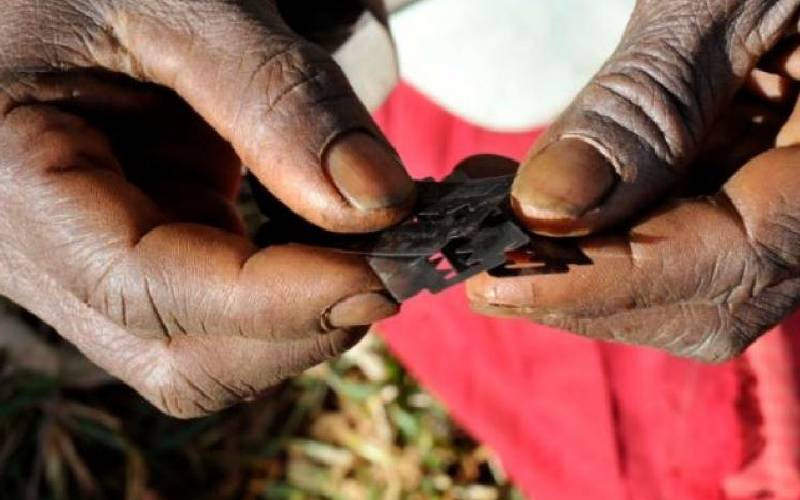
What started as a bout of anxiety followed by an overwhelming shift in worldview and increased brain activity would later be diagnosed as bipolar disorder for Eng Reuben Onunga.
He recalls that in 2017, during a particularly demanding period at work and while exploring political interests, he experienced a severe health breakdown.
At first, the situation puzzled him, and those close to him considered everything from spiritual attacks to witchcraft.
“I didn’t understand what was happening to me,” he says. “It was only after I visited a hospital that I began to find answers.”
Concerned friends who had noticed his erratic behavior and unusual posts on Facebook took him to a mental health facility in Nairobi’s Westlands area.
“I was actually taken to a mental hospital by friends. I had been posting strange things online, and they grew alarmed,” he tells The Standard.
At the hospital, he underwent several evaluations and was promptly diagnosed with bipolar disorder. The manic episode he was experiencing required immediate treatment, including a stabilising injection to calm his hyperactivity.
During his recovery, Onunga took a keen interest in understanding his condition. He suspected a hereditary link—his grandmother had suffered from a mental illness for many years.
“I now know it was bipolar disorder that manifested as a grandiose psychotic episode. It was acute but brief. I spent four days in the hospital being stabilized and continued with medication for another 30 days before returning to work,” he says.
Two years later, in 2019, he experienced a second episode, though milder and shorter. This time, he had more awareness and was able to manage the symptoms better—even traveling to China on a work assignment during his recovery.
Onunga describes the early signs of an episode as increased anxiety triggered by desperation, followed by a mental shift—a hyperactive brain frantically identifying patterns, especially numerical ones. This gave him a sense of empowerment and control.
“Now I understand that the brain, under stress, seeks a ‘safe space’ to avoid crashing. It creates a worldview that numbs the pressure, but it also comes with extreme emotions and a resistance to correction. You don’t accept you’re unwell,” he explains.
More awareness
He adds: “When you’re medicated, it feels like persecution. You might adopt a completely different personality. For me, I took on the persona of a suffering Christ—probably because of my Christian background. People cope in various ways, depending on their beliefs or experiences.”
With treatment, his symptoms subsided quickly. However, he warns that the temptation to revert to the altered mental state can linger, making it important to avoid triggers and seek consistent support. “I was better prepared during the second episode. I even bought antidepressants from a chemist when I felt the symptoms starting, though I couldn’t take them due to increasing anxiety. I kept resisting the shift and managed a milder episode, recovering faster after admission,” he says.
But the journey wasn’t just medical—it was deeply personal. He recalls the emotional pain of rejection, especially from family members who questioned his decisions during recovery.
“Most of the choices I made at the time were dismissed. There was a lot of stigma from both my extended and nuclear family,” he says.
One such decision was joining the Seventh-Day Adventist (SDA) Church, which didn’t sit well with his predominantly Sunday-worshiping family.
“That was a turning point in my life. It strained family ties, and not being able to support my family financially at the time added pressure on my wife. It caused serious damage, but we’ve worked through it. I made a determined effort to heal and resume my role as a husband and father.”
Fortunately, his children were too young then to understand what was happening. Today, he speaks to them openly about his experience. “I want them to know the truth about our family’s journey, its challenges and triumphs,” he says. Through lifestyle changes, education, and positive habits, Onunga has managed to avoid further episodes. He now advocates for mental health awareness and shares his story to encourage others.
Dr Linda Nyamute, a consultant psychiatrist at Jaramogi Oginga Odinga Teaching and Referral Hospital (JOOTRH) and Secretary of the Kenya Psychiatrist Association, explains that bipolar disorder is a mood disorder characterized by extreme emotional states.
“At one end, there’s the depressive phase—marked by sadness, hopelessness, low energy and withdrawal. In extreme cases, it may lead to suicidal thoughts,” she says. At the opposite end is the manic (or hypomanic) phase.
“This is when a person is unusually energetic, sleeps very little, and has racing thoughts. They may jump from topic to topic in conversation, driven by a flood of ideas. They often become excessively sociable, even with strangers,” Dr Nyamute explains.
People in a manic state may exhibit poor judgment, such as overspending or giving away money and possessions. “They often engage in excessive goal-driven activities, ignoring consequences,” she adds. Bipolar disorder, she says, occurs when a person fluctuates between these two extremes.
Risk factors include genetics, brain injuries, drug and substance abuse, trauma and environmental stressors like job insecurity and family conflict.
“While anyone can develop bipolar disorder, those with a family history are at higher risk. But eliminating other risk factors—like avoiding drugs and managing stress—can reduce the chances of developing the illness,” says Dr Nyamute.Managing the condition.
Dr Nyamute emphasizes the importance of self-regulation. “Life will always have challenges—a difficult boss, stressful colleagues, family issues. Self-regulation helps us understand what we can control and what we can’t. That’s key to mental resilience.”
Treatment, she says, involves a three-pronged approach: medication, therapy and personal commitment. However, she acknowledges major challenges in the mental health sector, particularly the shortage of professionals in rural areas.
“In urban areas, there are options, but in remote regions, the lack of psychiatrists makes access to treatment difficult. Medication can’t be prescribed without trained personnel. This leads to gaps in care.” He applauds recent efforts by counties to invest in psychiatric care but notes that stigma and lack of insurance coverage remain barriers.
 The Standard Group Plc is a multi-media organization with investments in media
platforms spanning newspaper print
operations, television, radio broadcasting, digital and online services. The
Standard Group is recognized as a
leading multi-media house in Kenya with a key influence in matters of national
and international interest.
The Standard Group Plc is a multi-media organization with investments in media
platforms spanning newspaper print
operations, television, radio broadcasting, digital and online services. The
Standard Group is recognized as a
leading multi-media house in Kenya with a key influence in matters of national
and international interest.











